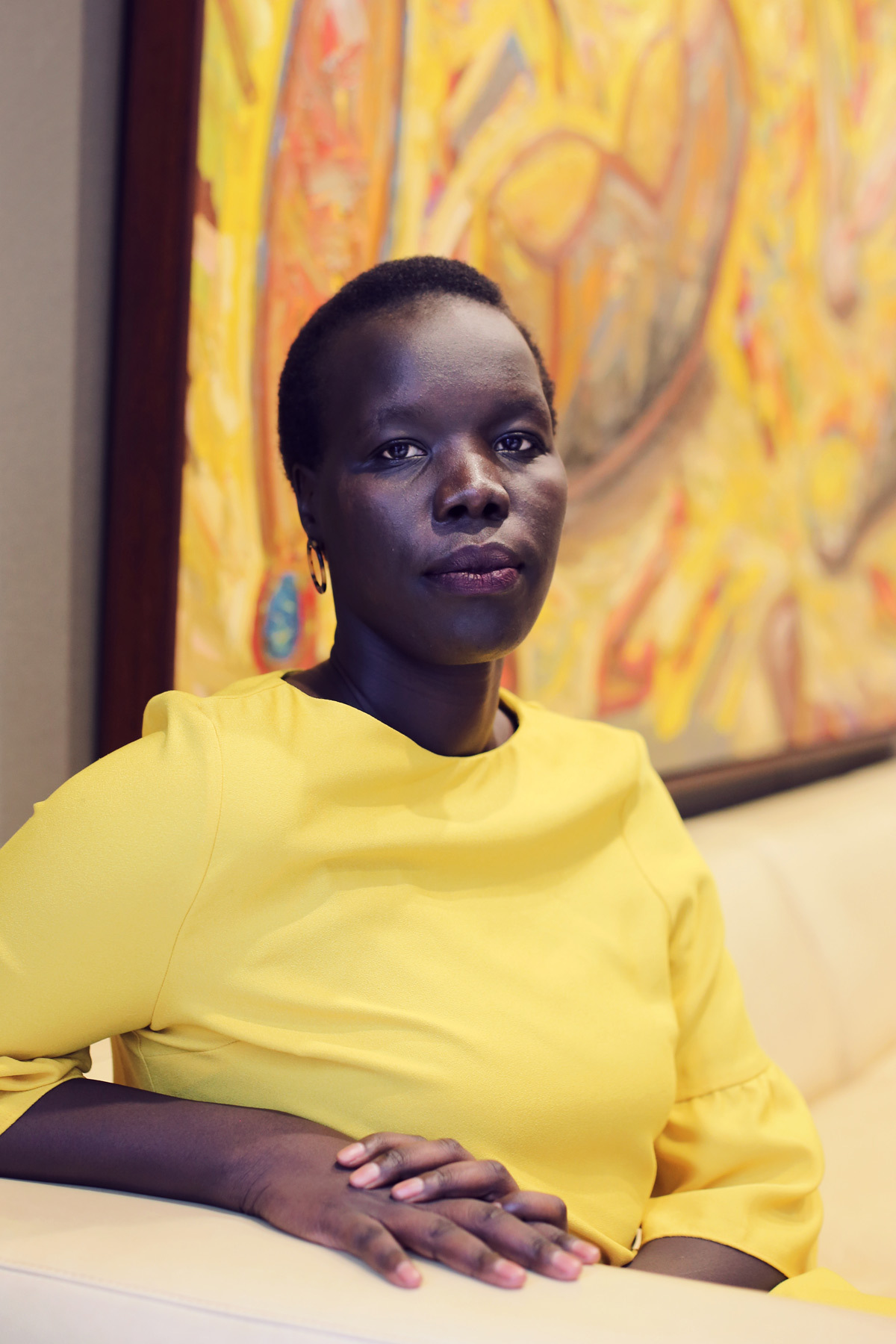Nyadol Nyuon – Wise Words
Rising young lawyer Nyadol Nyuon reflects on her journey to enter the profession and the resources that she has drawn on along the way.

In 2005, at the age of 17, I arrived in Australia from Northern Kenya with my mum, six siblings and two uncles.
I went to the local school and did Year 11 and Year 12, and achieved good enough grades to get into a Bachelor of Arts at Victoria University. I then applied to do law at Melbourne Uni. Law is a demanding profession and there was a real expectation for excellence. It was a radical shift for a minority child, particularly when some of my high school teachers had made it clear they didn’t think I was capable of university study.
When people underestimate me, I generally try not to take offence and just try to prove them wrong.
I have had to be resilient. I spent most of my childhood at a refugee camp called Kakuma in Kenya. To get to school, I had to walk for nearly an hour. The camp had limited resources and there was only one library for over 80,000 people.
Being resilient, however, is not the only thing that helps one survive. I was lucky too. I left friends in Kakuma refugee camp, who were as ambitious as I was and far more intelligent. If I am considered a success, I am aware that the difference between my friends who I left in Kakuma and I is that, they have not had the same opportunities as I have had to fulfil their dreams and goals.
I often emphasise the role of luck in my life because I feel it has played a big role. I’m not self-made. I represent the generosity of many people who gave me a chance, as well as their time and advice. Yes, I have worked hard, but not as hard as a mum in South Sudan trying to raise five children in the midst of conflict and poverty. So, I feel lucky to have been resettled into this country, and lucky to have met the people that I have along the way.
Looking to the future, I'm really worried for young people. I think a lot of them a growing up in a very unfair world, with growing inequality across the world, existential challenges like climate change and, more recently, the devastating effect of the global pandemic. For a wealthy country like Australia, I am not persuaded that government responses are generous enough to help young people overcome the devastating impact of the pandemic.
Funding universities and allowing access to education and training is important. But also supporting young people by acknowledging that there are just not enough jobs right now and that the future is so uncertain and frightening for many.
In a country like Australia, we get used to a level of comfort, which gives us the perception of certainty. But I don't think any of us ever really had that. And what COVID did was to force us to face up to the reality of an uncertain future.
Being a refugee helps you learn to accept and deal with uncertainty. When you don't have a lot of power to control what is happening outside, the best thing you can do is turn inside and build practices that allow you to survive until things get better. The most important thing is to have certainty about yourself.
The truth of life is that everything has two sides. Australia is great, but it has also some really big problems – like discrimination. I think that’s the biggest challenge for young migrants and refugees, and of course for our Indigenous peoples. We need more people in power to advance a narrative that is really inclusive of the diversity in this country.
As a young Sudanese woman, I was seen as quite radical. I remember being told once that I was too ambitious for a woman. Sometimes you feel like you should have whatever dreams other people have for you, especially as a young person. I have taught myself that my own dreams are valid and worth chasing.
Nyadol Nyuon is a lawyer at Arnold Bloch Leibler